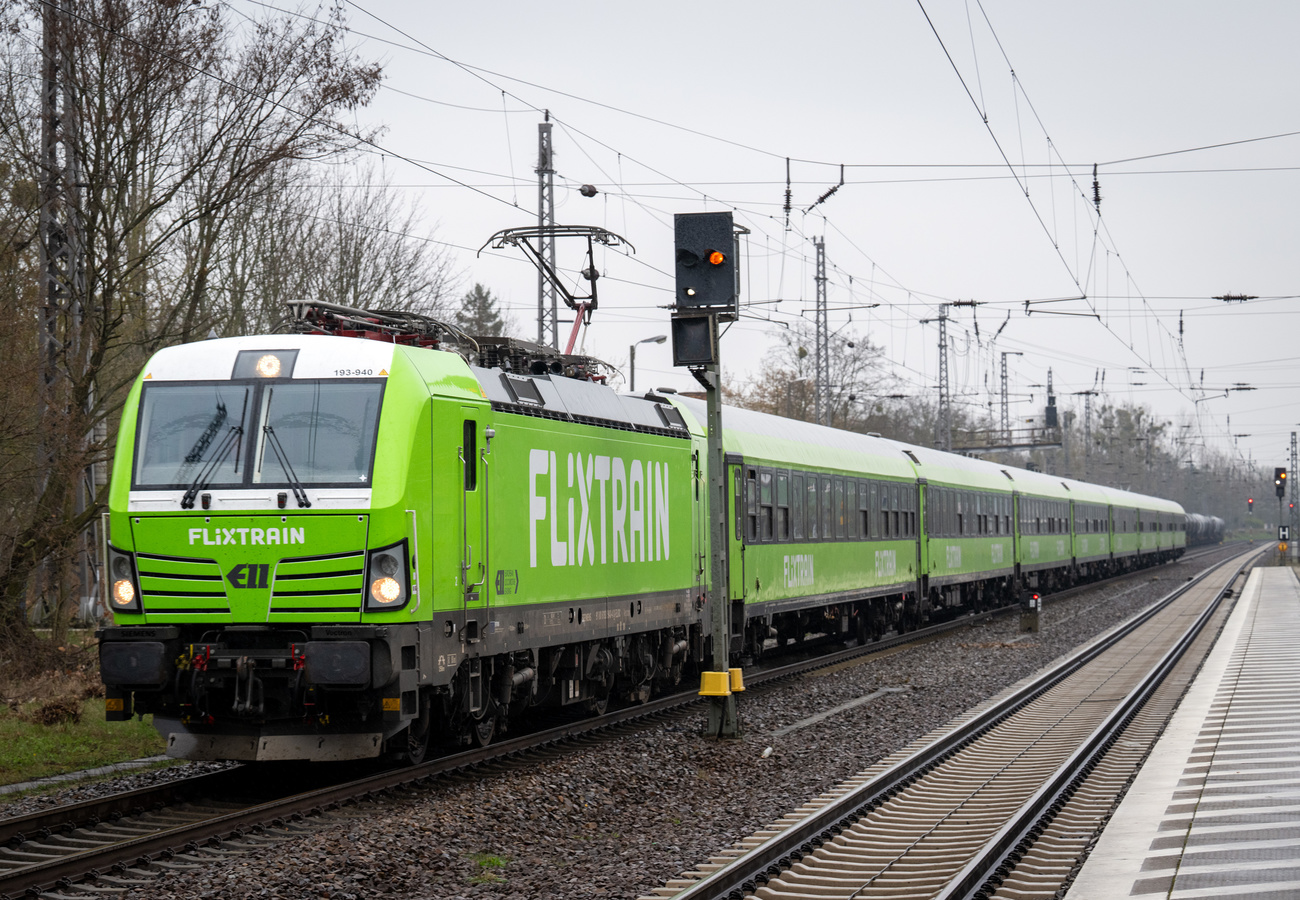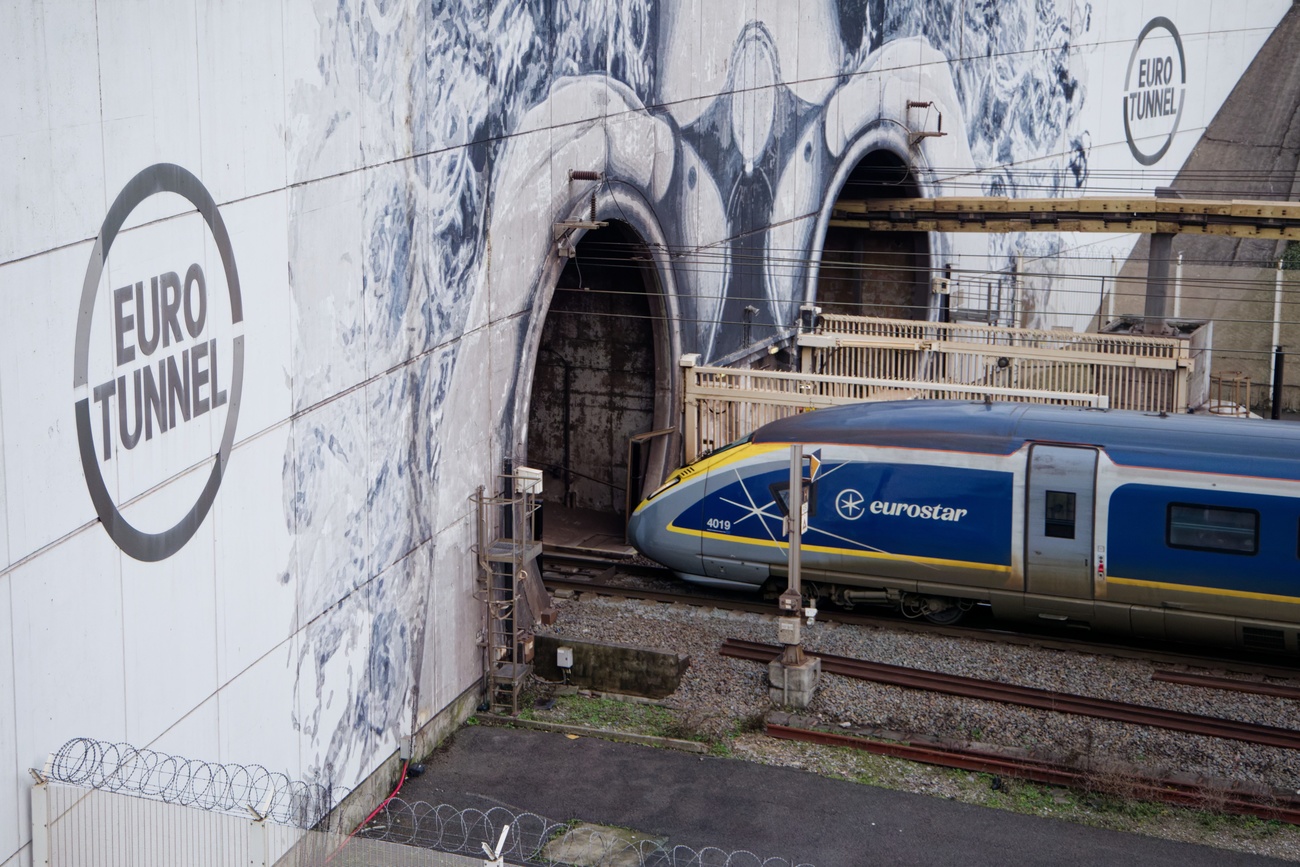
Does the Swiss rail network have room for international competition?

The Alpine nation is under pressure from the European Union (EU) to accommodate international train operators but it’s not competition that’s a problem.
Switzerland and the EU are getting ready to restart talks over bilateral relations after the Alpine nation walked away from the negotiating table in 2021. Both parties are working on repackaging the many bilateral agreements between them into a more streamlined deal. Among the negotiations taking place is updating the existing overland transport agreement. The EU is demanding that Switzerland partially liberalise international rail traffic.
“The idea behind introducing more international services is to try to get people to use trains instead of planes in Europe by creating a more competitive environment,” says Bernhard Lauterburg, an antitrust lawyer with Swiss legal firm Prager Dreifuss.
The Swiss government is not against liberalising the rail network per se. After all, it would allow Swiss railway companies to offer trains services abroad. At present, such connections are only possible in cooperation with a foreign railway company.
However, the governing Federal Council wants certain safeguards for Switzerland. This includes requiring foreign players to adhere to certain social standards to prevent wage dumping, as well as retaining sovereignty over the allocation of train routes.
Pandora’s box
Vincent Ducrot, CEO of the Swiss Federal Railways, fears that international rail services will take precedence over Swiss rail services as a result of negotiations with the EU. The EU is considering giving priority to international services, Ducrot told the Le Temps newspaper on Wednesday. But according to him, all the train routes are occupied in Switzerland.
“On the Geneva-Paris route, for example, where several European companies would like to make offers, we would have to remove a train if we wanted to run an extra one,” he explained.
The Swiss rail network below:
At the moment, priority is given to national scheduled traffic, and international trains comes last in terms of priority. But the negotiations between Bern and Brussels provide for the automatic adoption of European law and the EU is considering standardising the system by giving priority to international traffic, according to Ducrot.
Lauterburg is sympathetic to the Swiss railway boss’ concerns and agrees that entire Swiss system cannot be sacrificed for a few international trains. But he sees some loopholes that the EU can exploit in the negotiations.
“During the holidays, there are extra trains pressed into service that arrive at the station a few minutes after the regular service. So, there must be some spare space in the rail network,” he says.
All aboard FlixTrain?

Another worry on the Swiss side is that the low-cost German rail service FlixTrain will be the prime beneficiary of liberalisation. Besides Germany, the company operates in Sweden and offers a train service from Berlin to Basel. Last year, the European Commission announced that it would support 10 pilot cross-border rail projectsExternal link to “connect Europe by train”, including a FlixTrain route connecting Munich to Zurich.
“It is true that we like to offer cross-border FlixTrain connections to Switzerland and that we are in contact with the Federal Office of Transport to this end,” says company spokesperson Sebastian Meyer.
This has stoked fears of wage dumping. Last June, the Swiss rail union SEV opposed demands for liberalisation of passenger rail in the negotiations between Switzerland and the EU. They were supported by the European Transport Workers’ Federation that specifically mentioned FlixTrain.
“In particular, the expansion of FlixTrain to the Swiss network is cause for concern as this business model risks the extension of social dumping into the country, which has otherwise and up until now been a model for a well-functioning and socially considerate railway system,” said the press release on June 21, 2023.
“We work together with our partners to ensure that the workplace at FlixTrain is and remains attractive. This means that we and our partners usually pay well above the standard pay scale, we provide a state-of-the-art workplace and pursue an open-door policy: If an employee is ever dissatisfied, we often discuss this directly with their line manager,” says Meyer.
While Flixtrain may have wage implications for Swiss workers, Lauterburg doubts that the German firm will take over.
“Flixtrains are unlikely to be disruptive as they will probably run one or two trains to Switzerland a day. However, we cannot prioritise a few hundred Flixtrain passengers over the entire Swiss rail network,” he warns.
The best chance for Switzerland to successfully negotiate liberalisation with the EU could come from discontentment within the EU itself. While the proposal may work in places like France, where the high-speed TGV uses a different network than other French commuter trains, it might not work elsewhere in the bloc.
Lauterburg gives the example of the Netherlands which, like Switzerland, had set up a synchronised railway timetable quite early in the 1970s. He doubts if they would like to prioritise international trains over their national trains if that would jeopardise the national system.
“What the European Commission wants is one thing. I doubt if the majority of the EU member states want this kind of liberalisation, especially those with dense train networks and packed timetables,” he says.
Edited by Mark Livingston

More
Could a direct high-speed train link between Switzerland and London soon be a reality?

In compliance with the JTI standards
More: SWI swissinfo.ch certified by the Journalism Trust Initiative































You can find an overview of ongoing debates with our journalists here . Please join us!
If you want to start a conversation about a topic raised in this article or want to report factual errors, email us at english@swissinfo.ch.